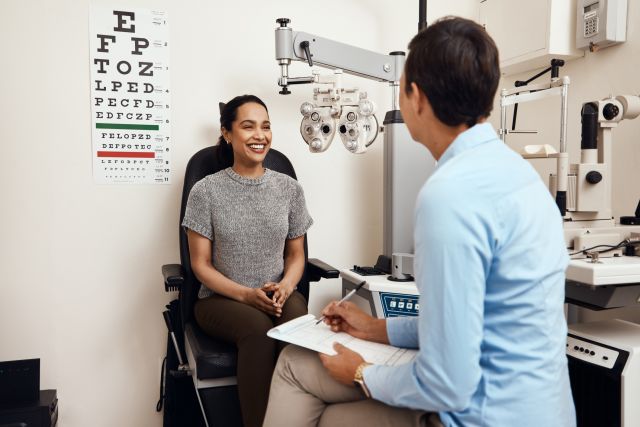Updated on March 27, 2024.
Inherited retinal diseases (IRDs) are a group of conditions that affect the health of a person’s eyes. More specifically, they affect the health of the retina, a layer of light-sensitive cells located at the back of the eye. Examples of IRDs include retinitis pigmentosa, choroideremia, and Leber congenital amaurosis. As the word “inherited” implies, these diseases are caused by a person’s genetics.
Different IRDs cause different patterns of symptoms, and some IRDs are more common than others. The average age of onset varies from one IRD to the next. They are often progressive, meaning they get worse with time. While the severity of symptoms will vary from person to person, IRDs can cause severe vision loss and can lead to blindness.
Healthcare providers who treat IRDs
Someone with an IRD will typically work with a multidisciplinary team, a group of healthcare providers (HCPs) with different specialties who focus on different aspects of treatment. This team may include the following:
- Ophthalmologist: This is a medical doctor who specializes in disorders that affect the eyes and vision. They have the licensing and training to practice medicine and perform surgery, and some focus on specific conditions.
- IRD specialist: Working with an HCP with IRD experience is essential since IRDs are relatively rare conditions and there is a lack of awareness compared to more common disorders. Providers who specialize in IRD diagnosis and treatment may include a retina specialist, a neuro-ophthalmologist, or a pediatric ophthalmologist.
- Low-vision specialist: This HCP focuses on low vision rehabilitation, which helps people with vision loss find ways to adapt and maximize how they use their remaining vision.
- Genetic counselor: Genetic testing is key to identifying and diagnosing IRDs. A genetic counselor is an HCP with specialized training in genetics and genetic testing.
Additional HCPs will help people manage life with IRD. One example is a medical social worker, who assists patients and families with the practical, emotional, and financial aspects of having a health condition.
Depending on a person’s age, they may also work with education specialists, who can help students meet their academic goals while living with an IRD.
IRD therapies
There are few treatments available for IRDs. But medical researchers are investigating potential therapies. Some of the most promising are gene therapies.
Gene therapies work by correcting or compensating for the genetic mutation that is causing the IRD. The U.S. Food & Drug Administration approved the first gene therapy for IRDs in 2017. This gene therapy can treat IRDs caused by specific mutations to the RPE65 gene. Dozens of other gene therapies are being studied in clinical trials.
Additional types of therapies are also in development. These include prosthetics that can be implanted in the eye to restore vision, as well as agents that prevent the death of cells in the eyes.







